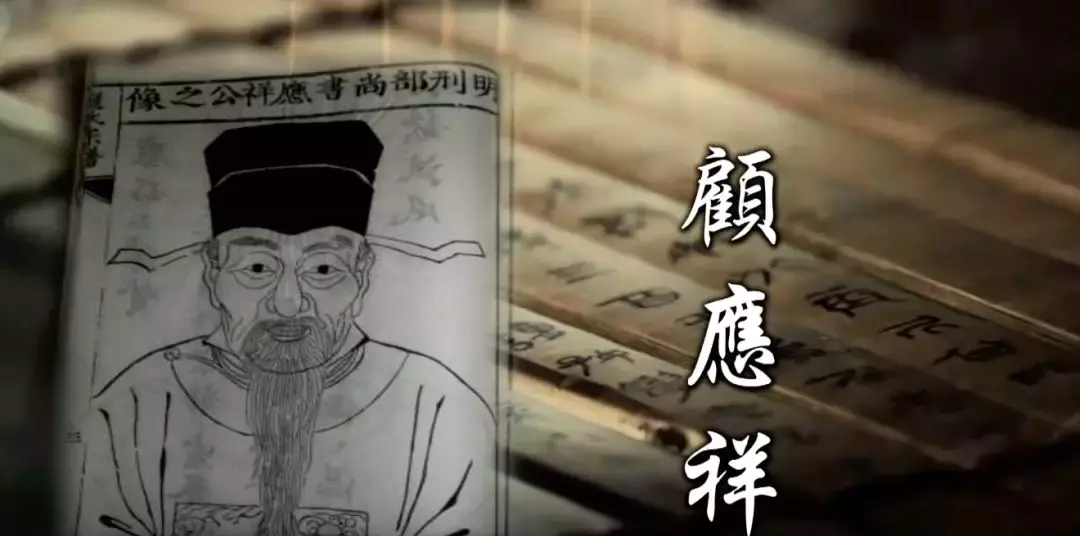In the old Changxing City, there were three arches, all of which were erected in honor of local celebrities. Unfortunately, they have all been destroyed by change, but it is gratifying that in the completed Dongyufang Historical and Cultural Block, these three arches have been newly reproduced, and today let's understand the story behind the Shangshu Arch.
On September 7, 1565, Emperor MingJiajing ordered his officials to give a recently deceased courtier the title of "Prince Shaobao". "Prince Shaobao" was a very high honor awarded by the imperial court at that time, and it was Gu Yingxiang of Changxing who was awarded this title this time.

Gu Yingxiang character Wei Xian, trumpet Zhenxi, Changxing people. He entered the examination in the eighteenth year of Hongzhi, and later became an official to the Shangshu of the Punishment Department, and because he crossed the two Shangshu of Beijing and Nanjing, he also had the title of "Two Capitals and Eight Seats". His life is legendary. From marching combat to ascending to the court, even mathematical operations are proficient.
In his lifetime, Gu Yingxiang read a wide range of books and wrote a wide range of books. The Excerpts are the embodiment of his political thought; the Law of Doubt is his study in the field of law; the Pythagorean Arithmetic shows his mathematical attainments; the Shang Shu Yan bears witness to his sutra insights; and the Chronological Calendar is his astronomical achievement. In addition, the "Go Selection" and "Card Score" he left behind also reflect his broad but not extensive interest.
Legend has it that when Gu Yingxiang was serving in the capital of Raozhou in Jiangxi, he once took one man and one horse to quell the riot and rescue the captured county order, which was passed down as a good story. Xu Zhongxing, a famous literary scholar of the Ming Dynasty, said of Gu Yingxiang, "Good reading, no reason to try to release the scrolls in one day, so that the nine streams and hundreds of families, everything is peeping", "his poems are like Bai Shaofu, his performance is like Su Wenzhong, his pen is like Zhao Wenmin, and Gong Gu does not want to think of himself as talented." Yan Song, who was in power at the time, commented that he was "elegant and refined, solid and refined, and solid corridor temple tools", which also showed Gu Yingxiang's political ability.
Because of this Talented Talent of Changxing Shangshu, there is such a Shangshu Archway that belongs to him alone in Changxing City. Unfortunately, the original of the archway is difficult to find, but the modern reproduction gives us a chance to look at it again.
In the current Dongyufang Historical and Cultural District, three antique arches were erected. The southernmost one is the "Shang Shu" archway belonging to Gu Yingxiang. The simple word "Shang Shu" weighs more than a thousand pounds for everyone who knows Gu Yingxiang's life. This Changxing Shangshu of that year has long been buried, but his spirit will continue to be passed on in his hometown of Changxing.
In the last decade of Gu Yingxiang's life, he once left the height of the temple and returned to his hometown to concentrate on compiling the "Chronicle of Changxing County".
Between the flow of pen and ink, he was soaked with his deep love for this land, holding the hope of "looking at the heavens, observing the appropriateness of the land, judging the changes in personnel affairs, and being able to establish a government and educate the people", he completed the extensive compilation work with his old age, and then passed away suddenly.
Whenever future generations look at the history of Changxing City, they will always remember the painstaking efforts of the old figure in that year.